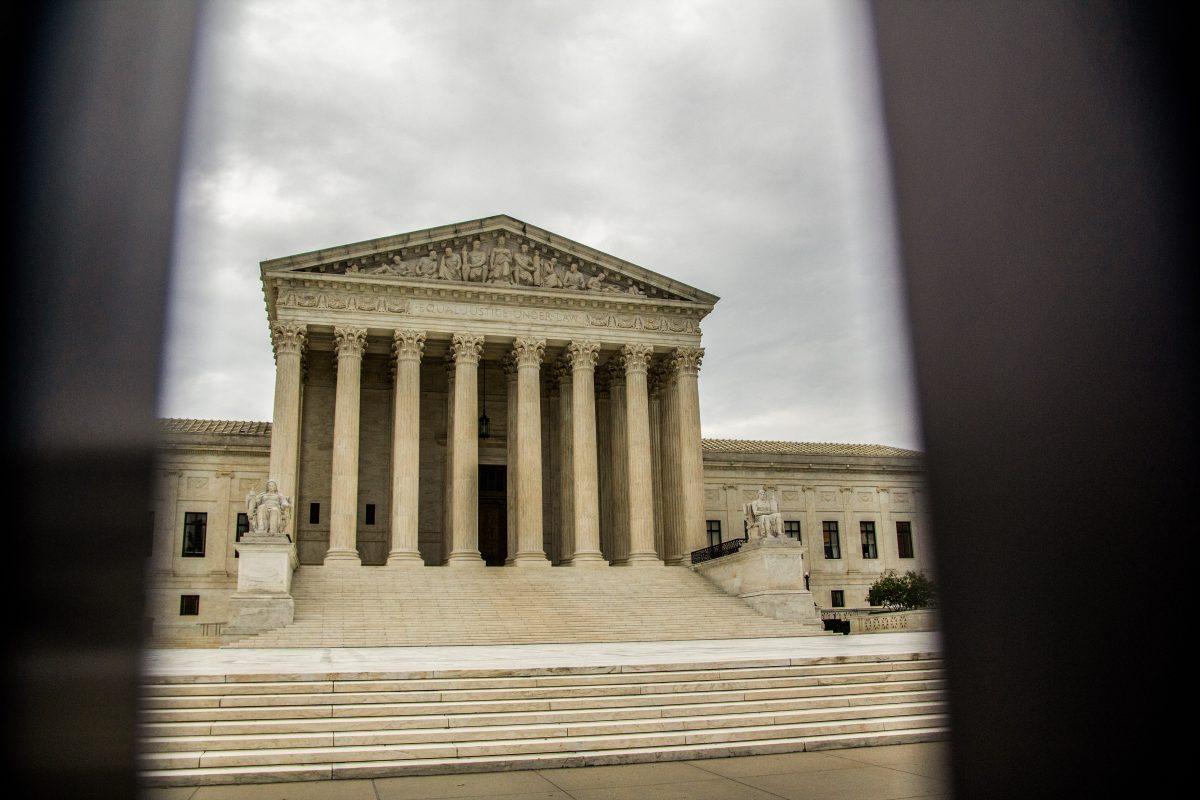A new Supreme Court case could decide if Medicaid users can go to federal courts for relief after their rights have been violated.
On Nov. 8, the Supreme Court heard oral arguments for Health and Hospital Corporation of Marion County v. Talvenski. The case was filed by Gorgi Talvenski’s family against the Health and Hospital Corporation of Marion County, Indiana. Talvenski’s family claims his nursing facility violated the Federal Nursing Home Reform Act, or FNHRA, by using psychotropic drugs as chemical restraints and involuntarily transferring and discharging him to a dementia facility.
The Talvenski family is suing under Section 1983, a federal law that provides individuals the right to sue the government for civil rights violations. The case originally went to a federal district court that dismissed it, stating that the FNHRA does not grant federal rights and cannot support a cause of action. Talvenski’s family appealed and the United State Court of Appeals for the Seventh Circuit reversed the decision. The case then headed to the Supreme Court and a final decision is not expected until June 2023.
This decision rendered from this case will answer two questions. First, whether the court should reexamine the well-established position that individuals can sue in federal court to protect rights from legislation under the Spending Clause of the Constitution, which includes Medicaid, the Supplemental Nutrition Assistance Program, or SNAP, and the Children’s Health Program. Second, whether the rights protected under the FNHRA are enforceable. These questions could both affect the rights of welfare program recipients, including college students enrolled in Medicaid or SNAP.
Texas A&M associate professor of public health in the Department of Health Policy and Management Simon Header said there are a lot of reasons this court case is important for the future of healthcare and healthcare coverage in the United States.
“It goes beyond healthcare,” Header said. “It’s a broader issue with whether beneficiaries of public programs have the ability to seek recourse through the court system or whether they simply have to rely on state and federal agencies to protect their rights.”
If the court rules in favor of Health and Hospital Corporation, it would mean that Medicaid beneficiaries would only be able to seek enforcement of rights under Medicaid from the Centers for Medicare and Medicaid Services or from state and federal agencies.
“Medicaid agencies and those that administer the program [Medicaid] often challenge the budget environment,” Header said. “Trying to impose as many restrictions as they possibly can to contain program costs. For beneficiaries, this often means that they see their access or their treatment curtailed.”
According to the Commonwealth Fund, the main worry of many beneficiaries under Medicaid is that this change could lead to many issues not being addressed in a timely manner or at all by state and federal agencies.
“When beneficiaries have to apply to federal and state agencies to seek a remedy that often can take a very long time,” Header said. “It potentially can go nowhere because of the restrictions of budgets, staffing and willingness to enforce regulations and statutes.”
Public health junior Abby Nitsch also expressed the same sentiments that the right for Medicaid enrollees to be able to go to the federal level is an important oversight tool of the federal government over states implementing Medicaid.
“Going to the federal level is an important thing to be able to do,” Nitsch said. “Because a lot of the time states might not be receptive or might not have the power to do anything about it. However, on the federal level, they can. They’re there to protect the rights of citizens and decide what is constitutional and not.”
Since the passage of the Affordable Care Act in 2010, Medicaid coverage for college students has increased substantially from 8% to 13%. The worry for many public health professionals, like Header, is that state agencies will try to impose further restrictions on access to specific Medicaid areas due to the fact that it could go unchallenged in a federal court.
“Potentially states that are less supportive of access to reproductive rights might get creative in creating restrictions to accessing contraceptive services,” Header said. “Even to a degree that is questionable under state and federal law, it’s something that is important for college students to have access to.”
According to The Kaiser Family Foundation, 1 in 5 low-income Americans are enrolled in the Medicaid Program. Many public health professionals worry that without oversight the system could take advantage of those already vulnerable individuals.
“So many people on Medicaid work in high-risk jobs,” Nitsch said. “They really need insurance to be able to protect themselves in case something happens. If it [Medicaid] turns into a horribly corrupt system, it would be really detrimental [to] their health.”
The long-term implications of this court case have the potential to upset precedents that have provided Medicaid beneficiaries their right in courts, like Section 1983 which has provided a precedent for protections for Medicaid beneficiaries in the past.
“Taking a step back, the benefits of the Medicaid program are not as legally, statutorily secure as Medicare and Social Security,” Header said. “There’s some concern that this could be another step to further restrict the rights and benefits of people on Medicaid. This one could do it quite severely because it could unwind some of the precedents that have been quite beneficial for Medicaid beneficiaries in terms of what they can access and how they can access it.”
Although this decision is not set to be made by the court until June, the outcome could decide if Medicaid beneficiaries have the right to sue in federal court. This is a decades-long precedent that the court has upheld; however, if overturned, it could lead to millions without proper protections for access to healthcare.
“Broadly speaking, if this is decided in favor of the Health and Hospital Corporation,” Header said. “We go into a situation where state agencies and providers have more power compared to beneficiaries. That raises questions about what it means to be a citizen, to have rights to public services, and how citizens can fail to have meaningful protections in a lot of ways.”










